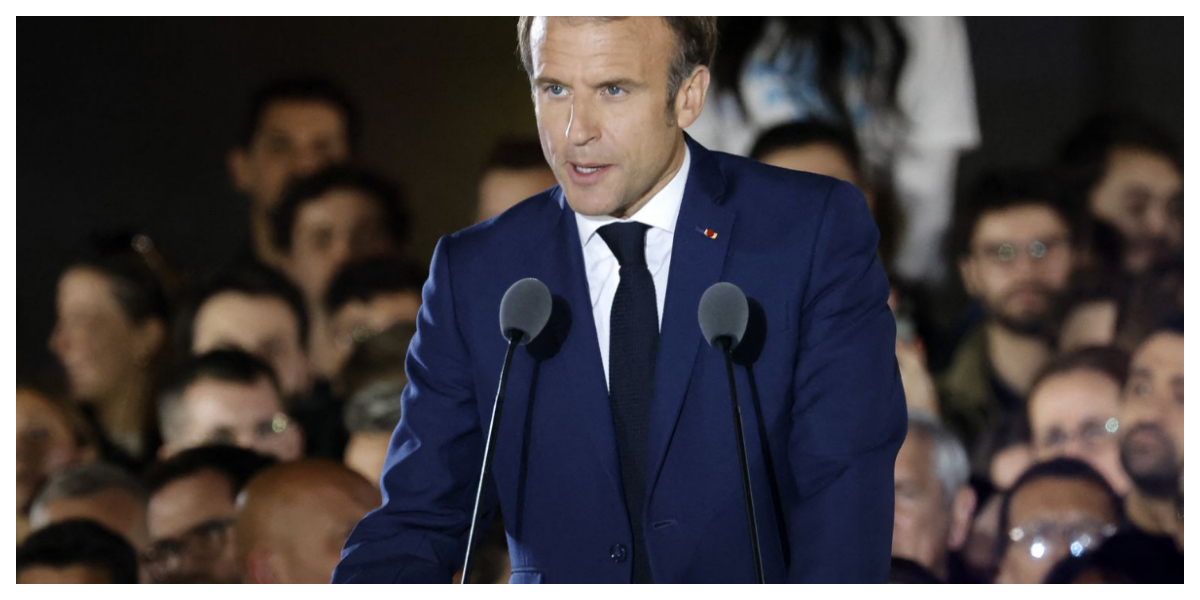President Emmanuel Macron selected Labor Minister Elisabeth Borne as Prime Minister on Monday, making her the first woman to lead the French government in more than 30 years.
Following Macron’s re-election in April and ahead of legislative elections in June, outgoing French Prime Minister Jean Castex handed in his resignation to the president, part of a widely expected reshuffle to make room for a new administration.
Following his re-election, the centrist Macron will require a legislative majority to push through his domestic agenda, with a new left-wing alliance and the far-right threatening to derail it.
Edith Cresson, the last female prime minister, served in President Francois Mitterrand’s administration from May 1991 to April 1992.
The Elysee confirmed Borne’s candidacy in a statement, and she immediately went to the premier’s Matignon mansion in Paris for the handover with Castex, putting an end to weeks of controversy.
“Nothing can halt the fight for women’s equality in our society,” she said at the handover, dedicated her post to “all the small girls” who should “achieve their goals.”
Borne, a former environment minister, called for a “quicker and bolder” response to the “climatic and ecological issue.”
Macron outlined their aims in a tweet addressed to “Madam Prime Minister.”
“Environmental protection, health, education, full employment, democratic renewal, Europe, and security are all important issues. “We will continue to act hard for the French people, together with the new government,” he stated.
‘It’s past time.’
Borne, 61, is regarded as a capable technocrat who can prudently negotiate with unions as the president starts on a new package of social changes, which includes a raise in the retirement age, which could stir protests.
Borne, according to a French presidential official who did not want to be identified, is a lady of “conviction, action, and realisation,” with the “ability to carry out reforms.”
“It was long overdue,” Cresson, who knows Borne personally, told BFMTV.
“She is an exceptional individual with extensive experience in both the public and commercial sectors… She’s a great option not because she’s a woman, but because she’s a terrific person,” she continued.
She was surprised that another woman prime minister had taken so long in France, which had never had a female president.
“France is very behind — not the French people, but the French political elite,” remarked Cresson, who faced countless sexist insults during her tenure in office.
‘Unability to come together’
Macron, 44, defeated far-right leader Marine Le Pen in presidential polls on April 24, winning 59 percent to 41 percent.
Both Le Pen and Jean-Luc Melenchon, the defeated hard-left leader, are eyeing comebacks in the parliamentary elections on June 12 and 19, which would give them the opportunity to derail Macron.
Melenchon recently persuaded the Socialist, Communist, and Green parties to create an alliance under his leadership, bringing the left together for the first time in decades behind a common agenda.
Macron’s opponents were less kind of Borne, whose appointment, according to Le Pen, demonstrated Macron’s “inability to unite” and willingness to “continue his strategy of contempt.”
Borne was “among the fiercest figures of social abuse” in France’s ruling elite, according to Melenchon, who dismissed the concept that she came from the left.
Castex had planned to quit immediately following the presidential election, as is customary in France, but was convinced to stay on by Macron while he sought a replacement.
The 56-year-old from rural southwest France has a no-nonsense attitude and a strong regional accent that has won him many fans in France.
He’ll be remembered for his handling of the Covid-19 pandemic’s later stages, as well as windmill arm movements and a propensity of forgetting where he put his glasses.
“He worked with enthusiasm and conviction in the service of France for nearly two years,” Macron wrote in a farewell message to Castex, who has stated that he has no plans for higher office.





















